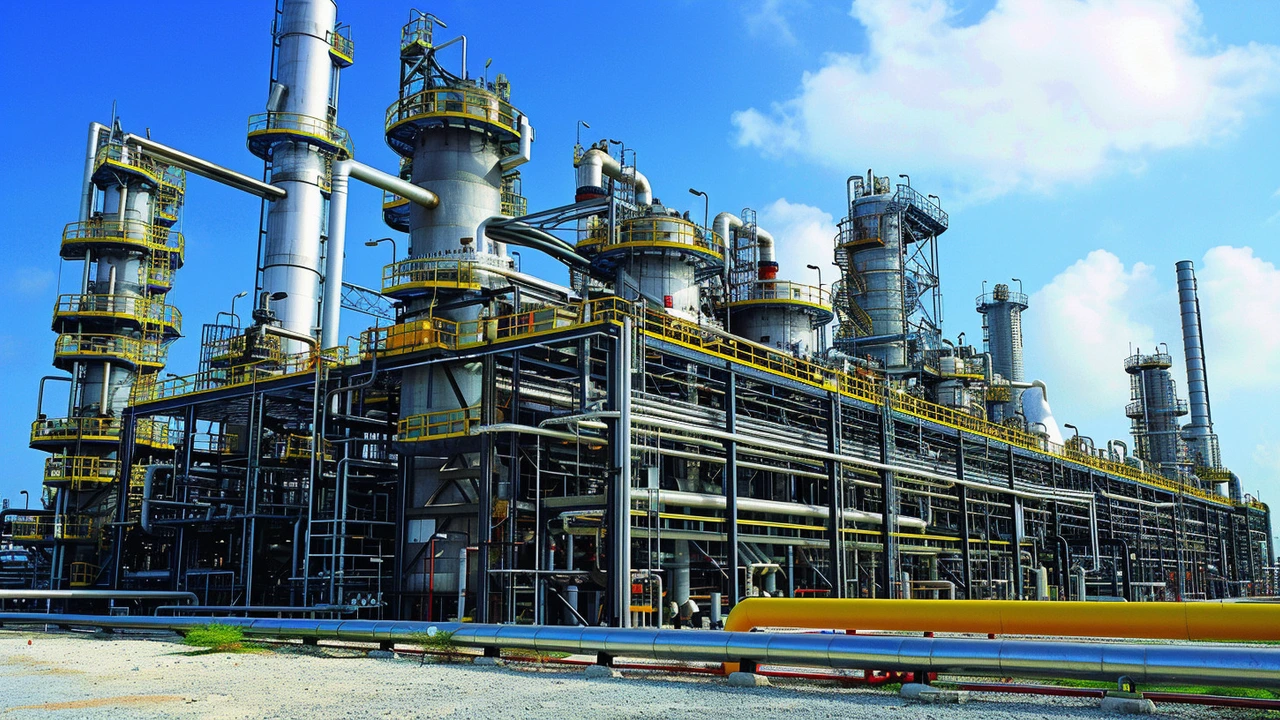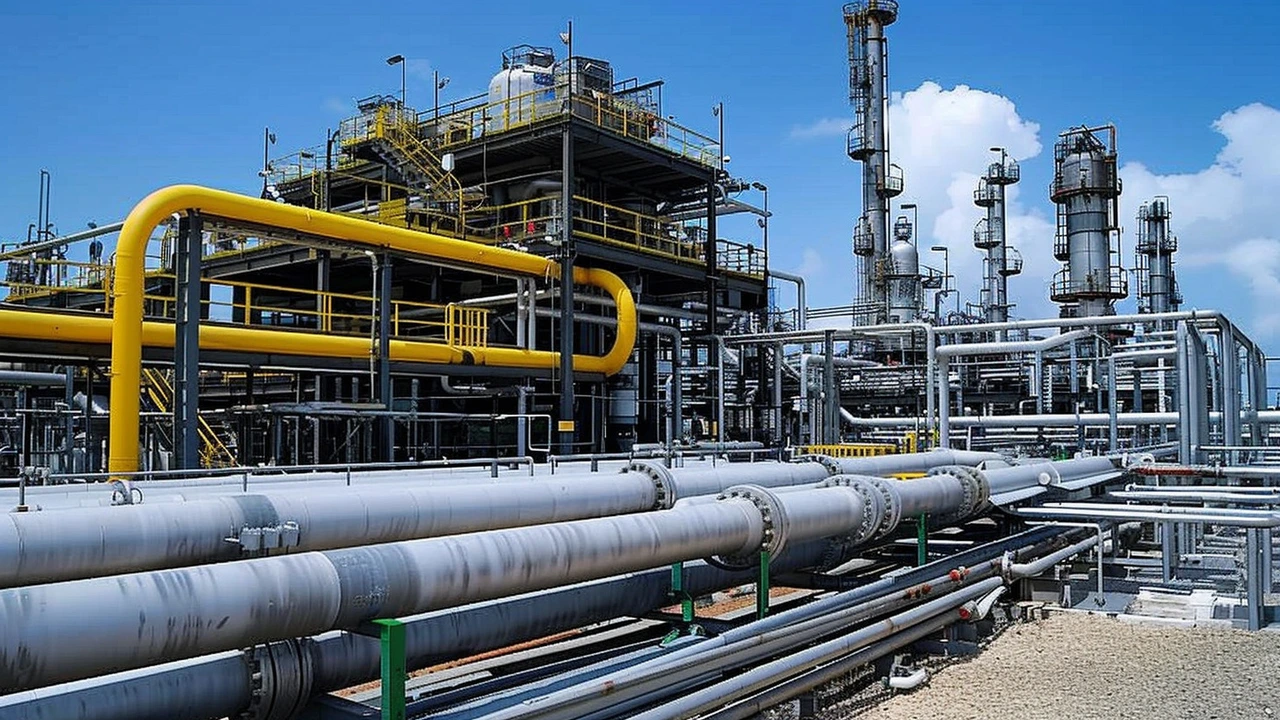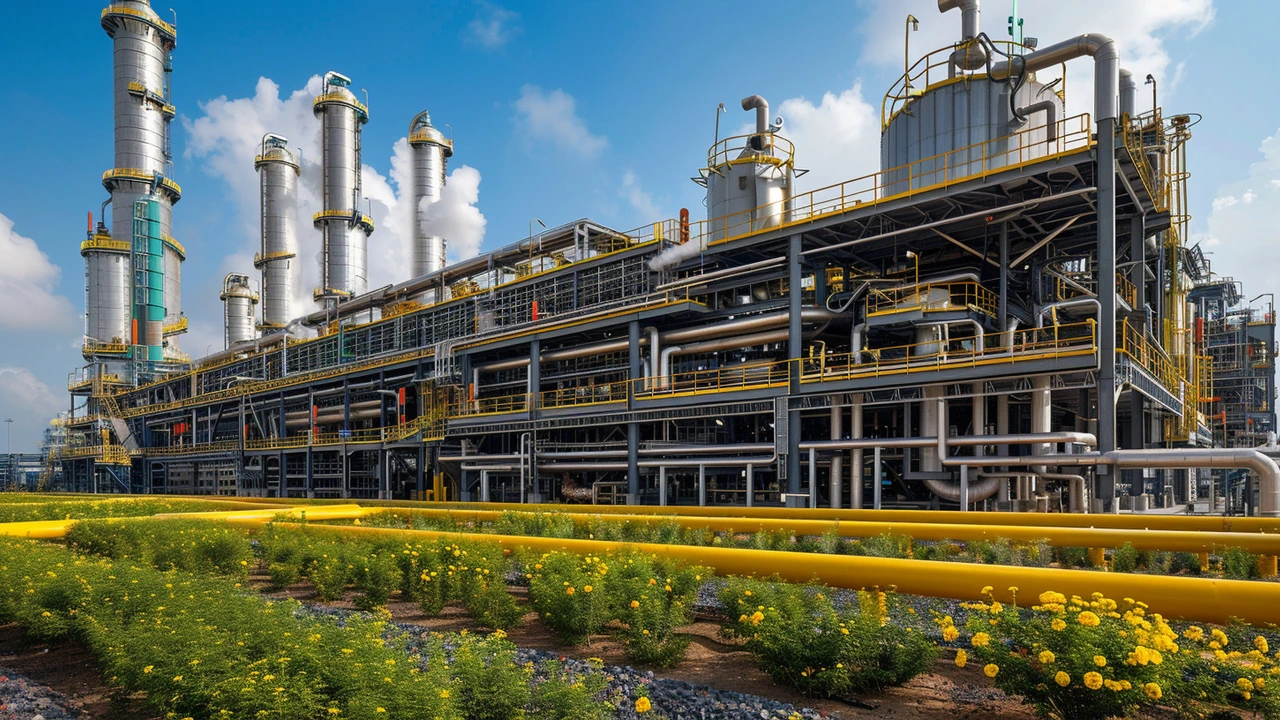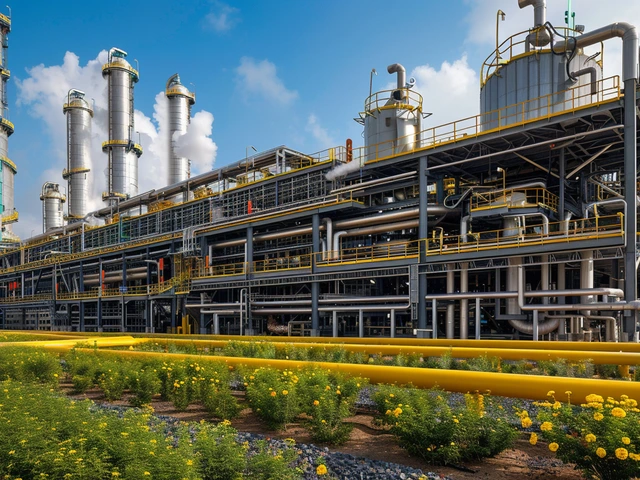Fire Incident at Dangote Refinery Raises Concerns
On a seemingly ordinary Wednesday morning, a fire disrupted operations at the expansive Dangote Refinery and Petrochemicals complex located in Lagos' vibrant Lekki free trade zone. This sprawling facility, with its capacity to process up to 650,000 barrels per day, plays a crucial role not just in Nigeria's economy but also in the wider African petroleum landscape.
The cause of the fire that ignited the effluent treatment plant remains under investigation, shrouded in uncertainty. However, Anthony Chiejina, the Group Head for Corporate Communications at Dangote, quickly reassured stakeholders and the public. In his statement, Chiejina labeled it a 'minor fire,' emphasizing that the refinery continued running almost uninterrupted, with no harm reported to personnel or significant damage to the facility.

Refinery's Essential Role in the Region
Dangote Refinery only recently began producing diesel and aviation fuel in January. The fire struck at a pivotal moment when the refinery was gearing up to expand its production of refined petroleum products, thanks to a recent shipment of an additional one million barrels of Bonny Light crude by the Nigeria National Petroleum Company (NNPC Ltd). By April, the refinery had begun to supply petroleum products to the local market, providing a much-needed boost to Nigeria's fuel supply chain.
The sheer scale of the Dangote Refinery is staggering. When fully operational, it promises not just to meet Nigeria's domestic fuel needs but to also become a significant exporter of refined products. It's part of a broader vision by Aliko Dangote, Africa's richest man, to turn the continent into a manufacturing hub, reducing dependency on foreign refined products.
Economic Impact and Community Response
The fire incident sent ripples through the local community and the broader economic landscape of Lagos. Local traders and businesses that rely on the refinery's operations momentarily braced for potential disruptions. However, the swift response and transparent communication from the Dangote Group helped to allay fears and prevent panic.
Community leaders praised the refinery's management for their quick action. Many noted that the company's preparedness and the resilience of their emergency protocols ensured that what could have been a disaster remained a manageable incident.
In the bustling financial hub of Lekki, any interruption in refinery operations can lead to immediate economic knock-ons, affecting everything from local bakeries to international oil trades. Keeping the refinery operational was critical to maintaining economic stability in an area where the stakes are extraordinarily high.

Future Precautions and Enhancements
As investigations continue to pinpoint the exact cause of the fire, early speculations range from mechanical failure to operational oversights. Details remain scant, but what is clear is that the incident is a stark reminder of the volatile nature of the petroleum industry. Experts suggest that enhancing safety protocols, increasing training for staff, and further investment in technologically advanced monitoring systems will be necessary to prevent future incidents.
Moreover, there are discussions taking place around implementing an even more stringent environmental and safety regulatory compliance framework. Such measures could prove vital for not just the Dangote Refinery but also other emerging petrochemical facilities in Nigeria and across Africa. These measures will likely lead to increased operational costs, but the long-term benefits of improved safety will outweigh these initial expenditures.

Industry Reactions and Market Response
The refinery fire also drew attention from industry professionals and market analysts. Early market reactions showed a slight uptick in the price of crude oil, reflecting concerns about potential supply disruptions. However, these fluctuations appeared to stabilize soon after it was confirmed that the incident had minimal impact on production capacity.
Several international petrochemical firms expressed their support for Dangote Refinery, offering assistance and expertise in managing the aftermath of such incidents. This community of support highlights the interconnected nature of the global energy sector, where the actions and events in one part of the world echo across markets and industries.
Concluding Thoughts on an Unexpected Yet Managed Crisis
The fire at the Dangote Refinery brought to light the vulnerabilities and challenges inherent in managing such a vast and complex operation. Yet, it also showcased the strength of effective emergency protocols and the resilience of a well-prepared workforce. Anthony Chiejina’s assurance that operations continue seamlessly instills confidence in the refinery’s operational capabilities and commitment to safety.
As Lagos and, by extension, Nigeria continue to navigate their economic futures, the Dangote Refinery remains a cornerstone of industrial and economic growth. The swift resolution of the fire incident is a testament to the facility's robust risk management strategies and a critical reminder of the need for continued vigilance and improvement.



12 Comments
Write a comment